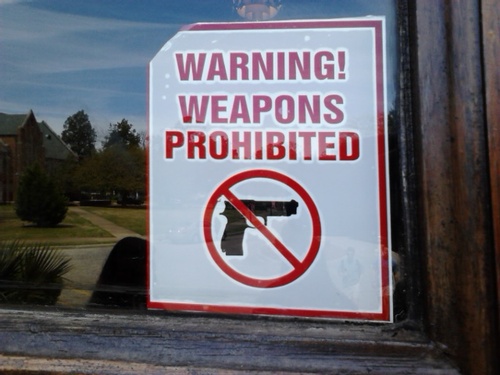
At the end of the spring semester, my students had a Skype session with students from North Ireland, to talk about each other's politics in their country. "Do you have any questions for our students?" the moderator, our former mayor, asked of our North Ireland guests.
"Are any of ye armed?" came the reply.
Follow-up questions about the number of shootings that occur in America continued. It echoed a time three years earlier, when I attended an international conference on terrorism in England. The organizer paused at the beginning so all of the delegates from more than two dozen countries could express their condolences to the Americans present, especially a professor from the University of Denver, because the night before was when the tragic shooting at a movie theater in Aurora, Colorado occurred.
Now, as the Charleston, South Carolina church killings occurred, people are accurately depicting what the killing was: a hate crime, and part of an element of domestic terrorism. Whether it's a lone wolf or an organized group matters little to the victims.
Are these types of rampage shootings on the rise, or does it just seem that way?
To determine this, I analyzed cases where five or more individuals were killed by gunfire in a narrow time frame. I did not mention the shooters in this column, because none of them really deserve to have their name mentioned again, as attention seeking is a partial motivation.
From 1983 to 1993, there were five such shootings, occurring at a McDonald's near San Diego, California in 1984, a postal station in Edmond, Oklahoma in 1986, a family massacre at Russellville, Arkansas in 1987, killings in Jacksonville, Florida and the tragic killings at Luby's Cafeteria in Killeen, Texas.
Between 1994 and 2004, the time when there were restrictions on certain types of guns, and more powers for law enforcement, there were two spree shootings: the killings at Columbine High School, and a day trader engaged in workplace violence at an Atlanta, Georgia suburb.
From 2005 to 2015, there were 10 such violent killings by a shooter. Such places of tragedy include Virginia Tech in 2007, Binghamton, New York in 2009, as well as a series of locations in Alabama in that same year, the Ft. Hood, Texas shootings of 2009, the killing of people at Rep. Gabby Giffords' campaign event in 2011, the hate crime killings at Oak Creek in Wisconsin in 2012, the Aurora Movie Theater massacre in 2012, the Newtown School shootings at Sandy Hook in 2012, the Washington, D.C. Navy Yards killings in 2013, and now the Emanuel AME church carnage yesterday evening. It supports what's been found by the Journalists Foundation.
While a majority of gun owners do not favor a return to an assault weapons ban, 60 percent favor having a federal database to track gun sales, while 85 percent prefer background checks for private and gun show sales, and 90 percent want laws to prevent mentally ill people from purchasing guns. Clearly, there's more support for restricting dangerous people from getting such guns. This is according to a Pew Research Center survey. Maybe it is a good time to enact legislation that even a majority of gun owners want.
John A. Tures is a professor of political science at LaGrange College in LaGrange, Ga. He can be reached at jtures@lagrange.edu.

